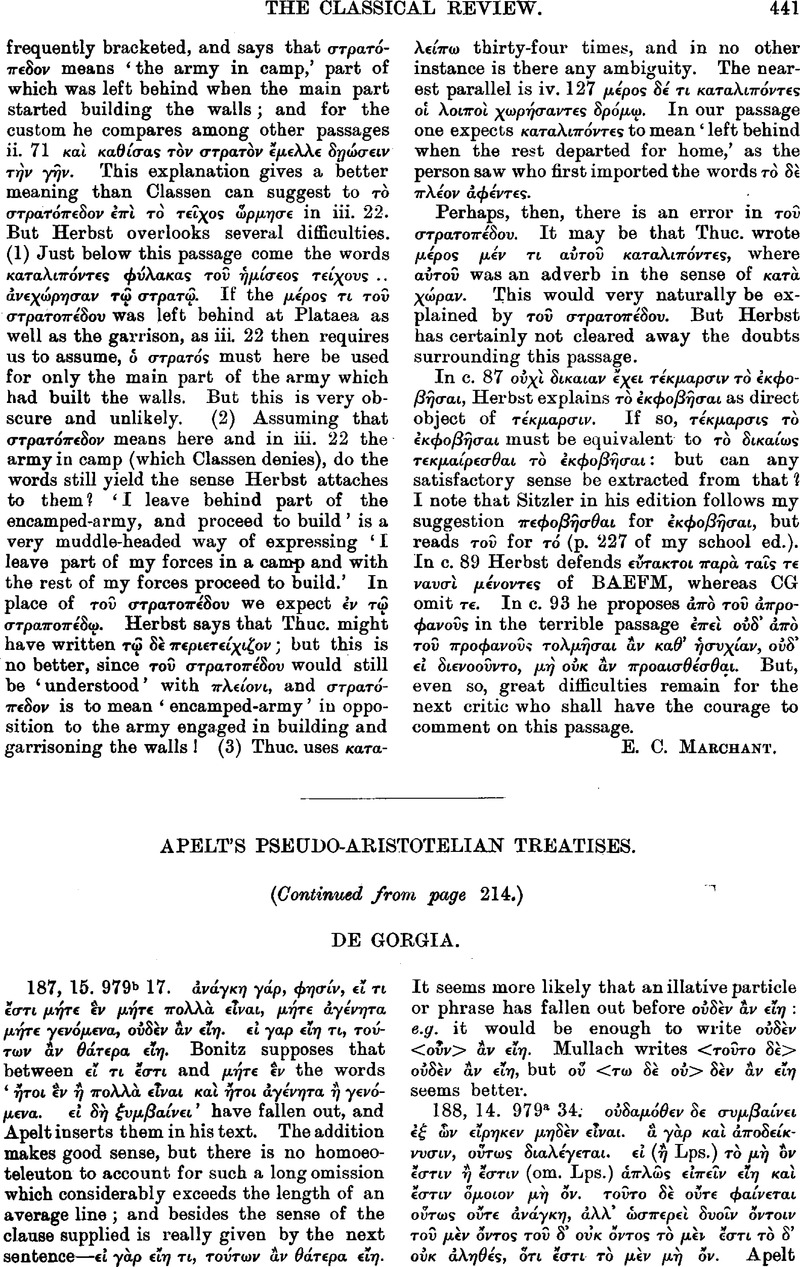No CrossRef data available.
Published online by Cambridge University Press: 27 October 2009

page 443 note 1 From poetry might be quoted as a contrary instance νανσ δ' οῠτε πεζς ἰών Pind. Pyth. 10. 29 cit. Kühner l.c.
page 443 note 2 See Stallbaum's note on Parm. 152 E.
page 444 note 1 Apparently Apelt also supposes that it is intended in the text to convict Gorgias of a contradiction (cp. ‘Gorgias sagt ja selbst’): but he does not make the clause ὅτε κ.τ.λ. serve to convey the contradiction, though the particle ὅτε suggests that such is its function. But if we follow the MSS., as Apelt does, aud read ὅτε οὐδεσ, the proper interpretation of the clause is surely ‘though no one thinks that Not-Being has any kind of being.’ This would be a refutation of ![]() , and thus the argument would not be that Gorgias contradicted himself, but that he contradicted an established truth. The objections to acquiescing in this last interpretation are: (1) while the selfcontradiction in Gorgias would not be pointed out at all, (2) a redundant argument would be produced, since pretty much the same thing is said in the next sentence, 979b 8, and before in 979b 1; and (3) the writer would not be likely to say
, and thus the argument would not be that Gorgias contradicted himself, but that he contradicted an established truth. The objections to acquiescing in this last interpretation are: (1) while the selfcontradiction in Gorgias would not be pointed out at all, (2) a redundant argument would be produced, since pretty much the same thing is said in the next sentence, 979b 8, and before in 979b 1; and (3) the writer would not be likely to say ![]() , for he would not disallow the proposition τ μ ν στι μ ν though he disputes the inference from it.
, for he would not disallow the proposition τ μ ν στι μ ν though he disputes the inference from it.
page 445 note 1 Cf. 976b 5.1